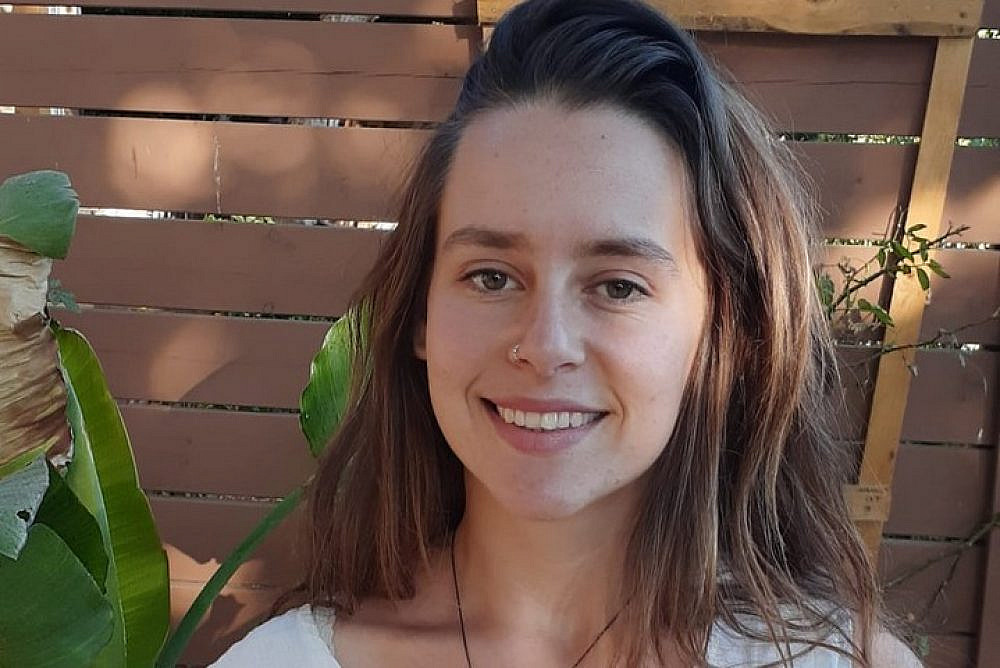With her privileged background, Hallel Rabin could have done military service in intelligence. Or at Army Radio. Or in any non-combat unit that is prestigious enough to enhance her future….

With her privileged background, Hallel Rabin could have done military service in intelligence. Or at Army Radio. Or in any non-combat unit that is prestigious enough to enhance her future career. But Rabin, who is just over 19, comes from the anthroposophical community of Harduf and has never tasted meat, chicken or fish, refuses to be drafted because she opposes violence of any kind.
She could have found ways around the draft to get an exemption. She could have pretended to be religious or gotten released on mental health grounds. But instead she is seeking to have the Israeli army recognize the legitimacy of her conscientious objection. As I wrote this column on Monday, she was reporting to an army recruitment center for the third time since August – and is due again to declare her refusal to become a soldier and her desire to do volunteer civilian service instead.
She is expected to be judged on the spot and sent again to Prison 6. The first time she refused, she was jailed for a week, and the second time, for two weeks.
She is coming prepared for military prison, “but that’s not the relatively easy route,” she said when we spoke. “It’s a serious headache. It’s scary – sparring with the system in its full power. I am subject there to the laws of the place, and they are the laws of a prison. Everything requires getting permission. I’m a prisoner, and they treat me as someone who has committed a crime.”
In her request to the recruiting office for an exemption, she wrote: “Killing, violence and destruction have become so common that the heart hardens and ignores it. … Evil has become one of the family for us, and we defend it and justify it or close our eyes to it and evade responsibility for it. … I am not prepared to take part in cultivating and maintaining a violent reality. I am not prepared to take part in an army that is subject to the policy of a government that runs counter to my values …”
The “conscience committee” that examines similar requests for exemption from service read the letter and met Rabin in August. “She gave the impression of being a girl of fine qualities,” read the recommendation of the committee, which by a majority vote decided to reject her request and instead place her in educational positions “where she can contribute to the Israeli army in a significant manner.”
The representative of academia on the committee, Prof. Yitzhak Benbaji, and the representative of the army’s behavioral science unit, Maj. Mor Segal, had recommended granting Rabin’s request. The board’s chairman, Col. Zvi Gal, along with 1st Lt. Daniel Hatwell, a legal adviser to the planning and manpower division, and 2nd Lt. Roy Mor, representing the manpower division, recommended against exempting Rabin from army duty.
The final decision, which was signed by Lt. Col. Avital Sayag Tal, deputy commander of the unit for placement of conscripts, stated that the conscience committee’s majority “had the impression that the reasons presented are not reasons involving a general conscientious objection to serving in any army, but rather other reasons that do not reflect an absolute refusal to doing defense service.”
So what does that mean? That the committee’s majority has concluded that Rabin opposes Israeli violence directed at the Palestinians. And in Israel, after all, that is not considered opposition for reasons of conscience but rather something political. But Rabin’s point of departure is not political. The word “occupation” is not mentioned in her request or in her replies to the committee. Surely the words “colonialism” and “apartheid” don’t show up either – and these concepts didn’t come up in her conversation with me.
The passages in her request which hint that we live in Israel include these: “I will not work in a system based on inequality, fear and a failure to see the other. … It is no less frightening to a young Jewish person than a young Palestinian person. There is no one, and certainly no entire people or nation, that enjoys suffering, lives for it, wishes it for its children. There is no benevolent oppression, no justifiable racism.”
Does the committee’s majority assume she would support oppression and racism in Switzerland or the United States, and would therefore enlist in their armies? Hallel Rabin has the courage to stray from the accepted route that her comfortable life has paved, and to refuse. May there be more like her.
